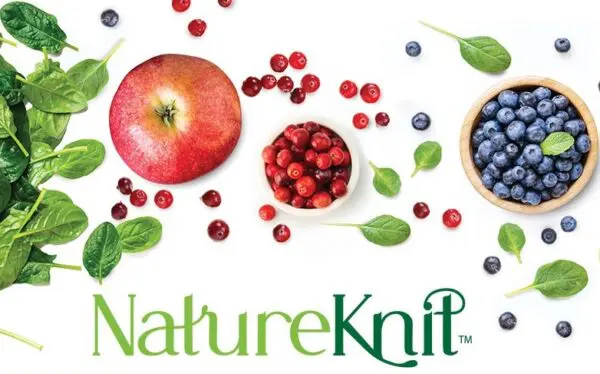Organic NatureKnit: Proven Prebiotic Performance

A newly published, peer-reviewed study confirms that Organic NatureKnit delivers significant and sustained prebiotic activity within the human gut microbiome.
February 04 2026
Read more

Research on the impact of choline has increased significantly in recent years. Prompting a team of researchers to conduct a systematic review and meta-analysis of human studies spanning from 1997 to 2021, to examine the link between maternal choline, neural tube defects, fetal brain development, and neurocognition.
Research on the impact of choline has increased significantly in recent years. Prompting a team of researchers to conduct a systematic review and meta-analysis of human studies spanning from 1997 to 2021, to examine the link between maternal choline, neural tube defects, fetal brain development, and neurocognition.
The research yielded noteworthy findings that underline the safety of choline and its favourable effects on two vital areas of infant development:
This new research further bolsters to the mounting body of science emphasizing the importance of prioritizing choline intake, and presents a compelling opportunity for the food supplement industry to develop innovative products aligned with an emerging health trend.
Choline remains absent from most prenatal vitamins1, and those that do promote choline often do not meet the recommended levels. Next to this, an alarming majority—exceeding 86%—of expectant mothers fall short of the recommended choline intake. Thus to ensure pregnant women meet the necessary choline intake thresholds, it is advised that sufficient quantities of choline are added to prenatal supplements. By leveraging the proven cognitive benefits of choline, formulators can create specialized supplements tailored to the needs of pregnant women, empowering them to make informed choices for the well-being of their children.
And with more than 90% of adults not getting enough choline2, the opportunities are not only limited to pre/postnatal supplementation. This essential nutrient for energy, metabolism and cognition can be incorporated into a range of supplements to support every life stage.
Expectant mothers are increasingly seeking science-backed nutritional solutions to support them during pregnancy. Choline meets this demand by delivering an ingredient clinically proven to enhance brain development and cognitive function in children. By incorporating choline into prenatal supplements, manufacturers can help pregnant women bridge the choline intake gap and provide access to adequate amounts of brain-building nutrients. Next to this, choline is produced to the highest quality standards and has a proven track record of superior quality that sets it apart.
1. Korsmo HW, Jiang X, Caudill MA. Choline: Exploring the Growing Science on Its Benefits for Moms and Babies. Nutrients. 2019 Aug 7;11(8):1823. doi: 10.3390/nu11081823. PMID: 31394787; PMCID: PMC6722688.
2. Jensen H. et al, The FASED journal, 2007
3. Wallace TC, Fulgoni VL. Usual Choline Intakes Are Associated with Egg and Protein Food Consumption in the United States. Nutrients. 2017 Aug 5;9(8):839. doi: 10.3390/nu9080839. PMID: 28783055; PMCID: PMC5579632.
4. EFSA J 2016; 14(8): 4484.
5. Caudill MA, Strupp BJ, Muscalu L, Nevins JEH, Canfield RL. Maternal choline supplementation during the third trimester of pregnancy improves infant information processing speed: a randomized, double-blind, controlled feeding study. FASEB J. 2018 Apr;32(4):2172-2180. doi: 10.1096/fj.201700692RR. Epub 2018 Jan 5. PMID: 29217669; PMCID: PMC6988845.

A newly published, peer-reviewed study confirms that Organic NatureKnit delivers significant and sustained prebiotic activity within the human gut microbiome.
February 04 2026
Read more

A newly published peer-reviewed study provides compelling evidence for the role of VitAlign in supporting cellular health and immune function.
January 28 2026
Read more

Did you hear the exciting news? Earlier this year, the publication of a new study on NatureKnit™, our innovative gut health solution, was announced.
August 28 2025
Read more